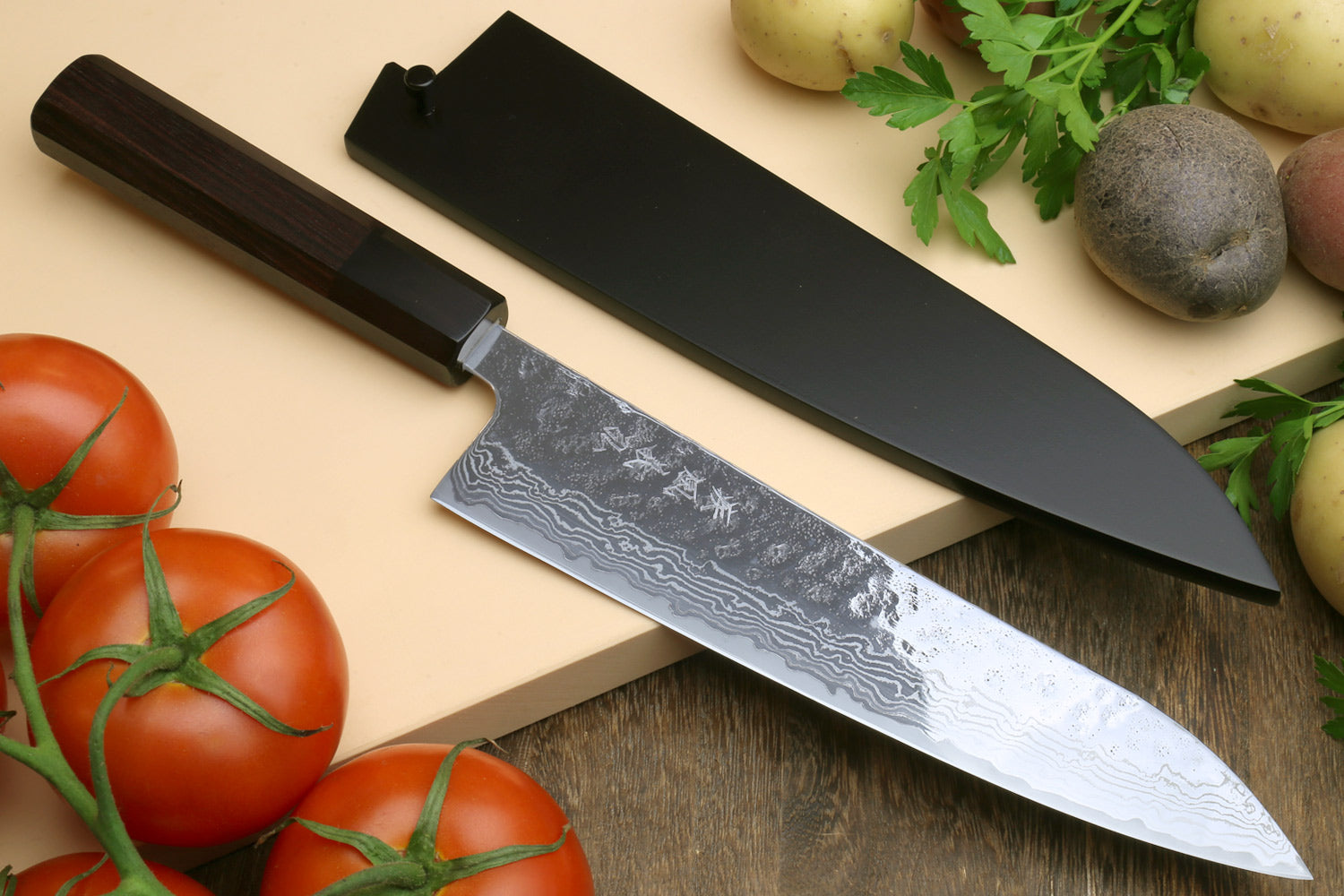In the world of culinary craftsmanship, the allure of Damascus steel is unparalleled. Highly regarded for its distinctive patterns and revered for its durability, Damascus knives have carved a niche for themselves amongst kitchen professionals. Yet, the market is inundated with both authentic and counterfeit versions, posing a challenge for even the most seasoned chefs. This article delves into the intricate details of real Damascus vs fake Damascus, equipping you with the knowledge to make informed decisions.

Understanding the True Beauty of Real Damascus Steel
The genuine Damascus steel dates back centuries, originating in regions that are now part of the Middle East. Historically, it was known for its unique wavy patterns and unprecedented strength, a result of the repeated forging and folding processes. This traditional craftsmanship is said to produce blades that are incredibly sharp and resistant to shattering. For more on this historical origin, you can explore this historical perspective.
Spotting the Fake Damascus
With demand comes imitation. Modern-day replicas often use acid etching to mimic the characteristic patterns seen in real Damascus steel. While visually captivating, these fake Damascus blades may lack the structural integrity and performance expected of the genuine article. One approach is to focus on the blade's performance and the reputation of the manufacturer. For instance, understanding knife brands can aid in discerning quality; check out insights about well-regarded brands like Cold Steel Knives.
Key Differences Between Real and Fake Damascus
- Craftsmanship: Authentic Damascus involves layered forging techniques, while fake versions primarily use surface treatments.
- Pattern: Real Damascus patterns arise naturally from folding techniques, whereas imitations often show uniformity due to etching.
- Durability: True Damascus offers enhanced toughness, making it a preferred choice for professional kitchens.

The Importance of Choosing Authenticity
For kitchen professionals, the integrity of the knife determines the quality of workmanship delivered. Investing in authentic Damascus not only promises durability but also imparts a sense of history in your culinary creations. To learn more about top knife materials and brands that professionals trust, consider reading about the best steel choices for kitchen knives.
Verify Authenticity Before Purchase
Before committing to a purchase, professionals should conduct thorough research. Brands with a strong legacy in producing authentic blades often provide certifications or detailed information about their forging processes. Engaging with knife-making communities, reading reviews, and exploring brand histories can be beneficial strategies.
Frequently Asked Questions about Damascus Steel
-
What are the key features of authentic Damascus steel?
Authentic Damascus boasts natural patterning due to the forging process, unmatched durability, and historical significance.
-
How can I detect a fake Damascus knife?
Look for uniform patterns, ask for certifications, and be wary of unusually low prices, which are typical signs of fake products.
-
Why is real Damascus steel valued in professional kitchens?
Due to its sharpness, resilience, and rich history, it is favored by many chefs for superior performance.
This article contains affiliate links. We may earn a commission at no extra cost to you.


























